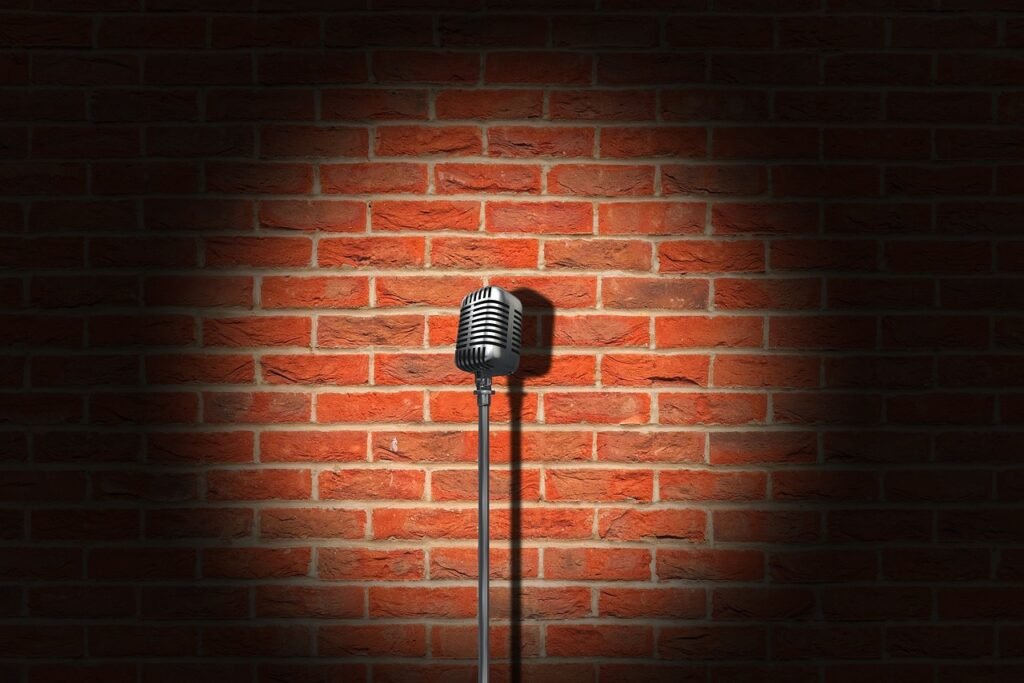
Mastering Humble Humor

Humility and humor have a unique chemistry that can light up a room.
Think of it as a finely tuned dance where self-deprecation and wit glide effortlessly together.
It’s about having the audacity to laugh at oneself without taking it too far into the realm of self-pity.
The key is striking that perfect balance—being funny while owning your flaws in a way that’s endearing, not depressing.
So, how do you master this delicate art? First off, let’s talk about self-awareness.
You’ve got to be in tune with your own imperfections, but rather than hiding them away, you parade them out with a wink and a nudge.
It’s like saying, “Yeah, I know I just tripped over my own feet, but hey, at least I didn’t faceplant into a wedding cake.”
One trick to nailing humble humor is focusing on those everyday flubs that everyone can relate to.
You know, the kind of stuff that makes people nod their heads and think, “Yep, been there, done that.”
Everyone has had that moment when they confidently stride into a sliding glass door, right?
The magic happens when you take those cringe-worthy episodes and turn them into comedy gold.
But here’s the rub: keep it light. Sure, self-deprecation can be hilarious, but there’s a fine line between making fun of yourself and making everyone uncomfortable.
The goal is to evoke laughter, not pity.
It’s all about creating an atmosphere where people can laugh with you, not at you.
Honesty is another ace up your sleeve.
Sometimes just being blunt about a quirky habit or an embarrassing mistake can catch people off guard in the best way possible.
Add a little twist or an unexpected punchline, and you’ve got a humble joke that hits the mark.
Imagine starting a joke about your disastrous cooking skills but ending it with a clever quip about considering a career as a smoke alarm tester.
Observing how top comedians like Jim Gaffigan or Ellen DeGeneres handle their humor can be incredibly insightful.
They make it look effortless, but trust me, there’s a method to the madness.
They own their quirks and flaws with such charm that the audience can’t help but be drawn in.
In the end, mastering humble humor is about blending honesty, relatability, and just the right amount of self-deprecation.
When done right, it’s a surefire way to win over any crowd.
Advantages of Humble Comedy

Ever notice how some comedians can instantly make a crowd feel like old friends swapping stories?
That’s the magic of humble comedy at work.
By weaving humility into their jokes, comedians create an atmosphere where everyone feels included and seen.
When a performer shares their own goofy blunders or quirks, the audience can’t help but think, “Wow, I’m not the only one!”
It’s like a universal icebreaker that gets everyone chuckling.
Humble humor also has this sneaky way of making comedians seem more authentic.
There’s something incredibly endearing about a person who doesn’t mind poking fun at their own imperfections.
It says, “Hey, I’m just like you, tripping over my own feet and forgetting where I put my keys.”
This kind of relatability breaks down barriers and builds an instant connection.
The audience feels like they’re in on a joke that everyone can understand because they’ve lived it too.
And let’s not forget how humility can soften the punch of a joke.
When comedians laugh at themselves, it makes their humor feel less like a targeted jab and more like a group hug.
People are more likely to laugh along when they sense that the comic isn’t taking themselves too seriously.
It creates a safe space where everyone can let their guard down and enjoy the ride.
Humility in comedy also opens up a treasure chest of material.
When you’re willing to admit your own awkward moments, the everyday mishaps turn into comedic gold.
Think about it: mundane activities like navigating a crowded grocery store or trying to assemble IKEA furniture suddenly become hilarious anecdotes.
The charm lies in the familiarity—everyone has had those “why me?” moments, making the humor universally appealing.
Let’s face it, nobody enjoys being around someone who thinks they’re perfect.
Perfection is intimidating and, quite frankly, a bit boring. On the flip side, a comedian who can laugh at their own mishaps brings a refreshing breath of authenticity.
It’s disarming and makes the comedy feel more genuine.
By weaving humility into their routine, comedians invite the audience into a shared experience.
It’s like having a heart-to-heart with a funny friend who’s not afraid to laugh at their own expense.
This dynamic fosters a sense of camaraderie, making the humor feel intimate and relatable.
Crafting a Humble Joke

Alright, let’s get down to the nitty-gritty of crafting that perfect humble joke.
You want to be funny but also relatable, which means zeroing in on those everyday blunders that everyone’s experienced.
Think about it: we’ve all had those moments when we confidently greeted someone only to realize we were waving at a complete stranger.
Jackpot! That’s prime material for humble humor.
Step one is to focus on flaws or experiences that resonate with the majority of people.
Everyone’s had a slip-up or two—those embarrassing yet harmless moments that make us all human.
It’s all about finding that sweet spot between a chuckle-worthy mistake and a universal truth.
Now, keeping it light is crucial. Sure, there’s a place for dark humor, but a humble joke is not it.
The goal here is to make people laugh with you, not feel bad for you.
So if you’re talking about how you once wore mismatched shoes to an important meeting, the punchline shouldn’t be about how it ruined your life.
Instead, something like, “At least I started a new fashion trend… sort of.”
Everyday situations offer a goldmine of comedic potential.
The mundane is often hilarious because it’s so relatable. Struggling to open a jar of pickles? Check.
Arguing with autocorrect? Double-check.
These scenarios are ripe for the picking because they’re things everyone’s dealt with at some point.
Honesty can be your best friend here.
Sometimes, just telling it like it is can be unexpectedly funny.
Admit that you’ve got a habit of losing your keys in the fridge, and people will laugh because, let’s be real, they’ve probably done something just as absent-minded.
A twist can really elevate your joke to the next level.
Start with something relatable, then add a surprise ending.
Like when you admit you got lost in your own neighborhood, but then reveal you were following your cat, who you thought had a better sense of direction.
In the end, crafting a humble joke is about blending relatability, honesty, and a sprinkle of creativity.
It’s about turning your little mishaps into big laughs, making everyone feel like they’re in on the joke.
So go ahead, trip over your own feet, and turn it into a story worth sharing!
Notable Comedians Who Embrace Humility

Jim Gaffigan is an ace when it comes to humble humor.
He takes everyday situations, like the struggles of parenting and his love for junk food, and turns them into comedic masterpieces.
You know you’ve hit the jackpot of relatability when you’re joking about your constant craving for bacon, and the audience is nodding along, laughing with their mouths full of imaginary snacks.
Then there’s Ellen DeGeneres, the queen of making awkwardness look endearing.
Whether she’s talking about her dance moves or her everyday blunders, Ellen has a knack for making us laugh at life’s little oddities.
Her charm lies in how she brings a slice of her real self into her routines, making her audience feel like they’re sharing a laugh with a friend, not just watching a performance.
Take Kevin Hart, for example. This guy doesn’t just bring the house down; he makes the house feel like it’s in on the joke.
Kevin often jokes about his height and his family dynamics, weaving in a humility that makes his larger-than-life persona feel down-to-earth.
He’s a pro at making the absurdities of his life feel strangely relatable.
And let’s not forget Mindy Kaling. Mindy’s humor often revolves around her experiences as a woman navigating various social situations.
Her ability to poke fun at herself while addressing more significant issues like cultural identity and workplace dynamics makes her humor both refreshing and thought-provoking.
She brings an honest and relatable touch to her comedy, making her audience feel seen and heard.
Louis C.K. also dives headfirst into his own flaws, often making himself the butt of his jokes.
His humor is brutally honest, and while he treads into darker territories, he never shies away from admitting his own faults.
This vulnerability creates a complex blend of humor that keeps audiences both laughing and thinking.
Ali Wong rounds out our list with her hilarious takes on motherhood and marital life.
Her jokes about pregnancy and the challenges of balancing a career with family life hit home for many.
She masterfully combines humility with sharp wit, creating a comedic style that feels both personal and universal.
These comedians show that humility isn’t just a nice trait to have; it’s a comedic goldmine.
By embracing their quirks and flaws, they create humor that’s not only funny but also deeply relatable.
Humility in Audience Interaction

When comedians bring humility into their audience interactions, they create an instant connection that’s hard to beat.
It’s like inviting everyone to the cool kids’ table where no one feels left out.
By poking fun at their own quirks, comedians make it clear that, hey, we’re all human and perfectly imperfect.
Imagine a comedian sharing a story about getting lost in their own neighborhood.
The audience laughs not just because it’s funny, but because they’ve been there too.
It’s that shared moment of “Yep, I’ve done that,” that makes the experience more engaging.
The audience feels like they’re in on a collective joke, turning a room full of strangers into a group of friends.
Humble humor also takes the sting out of more direct audience interactions.
When a comedian throws in a bit of self-deprecation, it softens the edges and makes the audience feel less targeted.
For example, if a comedian teases someone in the front row about their fashion choices, they might follow up with a joke about their own disastrous wardrobe malfunctions.
It’s all in good fun, and no one leaves feeling put on the spot.
One of the best parts about incorporating humility is that it makes the humor feel spontaneous and genuine.
When comedians laugh at their own mishaps, it gives the audience permission to laugh at theirs too.
This dynamic creates an atmosphere where everyone can relax and enjoy the show without the fear of being the next punchline.
Take Ellen DeGeneres, for example.
She’s a master at interacting with her audience in a way that feels personal and genuine.
Whether she’s dancing awkwardly or sharing a silly story, she makes her audience feel like they’re part of the fun, not just spectators.
This kind of interaction keeps people engaged and coming back for more.
By using humble humor, comedians also show that they don’t take themselves too seriously.
This makes them more relatable and endearing.
It’s a win-win: the audience gets a good laugh, and the comedian builds a stronger connection with them.
Avoiding Mistakes in Humble Comedy

While humility in comedy has many benefits, it can also backfire if not handled carefully. Here are a few pitfalls to avoid:
Overdoing It: Sure, self-deprecation can be funny, but there’s a fine line between a good laugh and a cringe-fest.
Going too hard on yourself can make people feel awkward or even sorry for you. Nobody wants to watch a comedian have a pity party on stage.
Lack of Confidence: Even while poking fun at yourself, you’ve got to show some confidence.
No one wants to listen to someone who seems like they need a hug more than a laugh.
Confidence in delivery can make even the silliest self-jabs land perfectly.
Ignoring the Audience: A joke that slays one crowd might bomb with another.
Pay attention to your audience’s reactions and be ready to switch gears if needed.
If your self-deprecating humor isn’t hitting the mark, try a different angle.
Making It Too Personal: While personal stories make for great jokes, getting too deep into your own issues can make people uncomfortable.
Keep it light and relatable.
Think of it as sharing a funny anecdote with friends, not unloading at a therapy session.
Repeating the Same Jokes: Even the best humble jokes can wear thin if overused.
Mix up your material to keep things fresh and engaging.
Variety is the spice of life—and comedy!
Disrespecting Yourself: Remember, the goal is to make people laugh, not to tear yourself down.
If you start to feel like your jokes are getting a bit too negative, it might be time to reassess.
A joke should never make you feel bad about yourself.
Forgetting the Fun: Comedy should be enjoyable for both you and your audience.
If you’re not having fun, it’s likely they aren’t either.
Keep things upbeat and don’t be afraid to laugh at your own jokes.
In the end, humble comedy is all about balance.
By avoiding these common mistakes, you can keep your humor relatable, engaging, and, most importantly, funny.
Adding Humility to Your Personal Humor

Alright, folks, let’s talk about sprinkling a little humility into your own comedic arsenal.
First off, be honest with yourself. We all have those quirks and idiosyncrasies that make us unique—embrace them!
Maybe you’re someone who constantly loses their phone, only to find it in the fridge.
Own it! The beauty of humility in humor is that it’s disarmingly relatable.
People appreciate the authenticity and it instantly makes you more likable.
Next, take some time for self-reflection.
What are those little things about yourself that make you chuckle?
Is it your knack for butchering song lyrics, or perhaps your complete inability to parallel park?
Use these tidbits as the foundation for your jokes.
The key here is to keep it light-hearted.
We’re not aiming for a roast session; we’re aiming for a chuckle fest.
It’s also incredibly useful to observe others. Watch how seasoned comedians like Jim Gaffigan or Ellen DeGeneres weave humility into their routines.
Notice how they’re able to laugh at themselves without veering into self-pity territory.
Your friends can be great teachers too. Pay attention to those who make you laugh with their self-aware humor and take notes.
Staying positive is crucial.
While it’s tempting to dive into darker, more self-deprecating humor, remember that the goal is to keep things fun.
Self-deprecation can quickly turn into a downer if not done right.
So, if you’re joking about your terrible sense of direction, don’t end with “I’m hopeless.”
Instead, wrap it up with something like, “I’m basically a human GPS… that needs a serious software update.”
Remember, humor is supposed to be enjoyable for everyone involved, including you.
If you’re laughing at your own jokes, chances are others will too.
So go ahead, embrace those quirky habits and embarrassing moments.
Turn them into jokes that make people feel like they’re laughing with an old friend.
Because in the end, the best humor is the kind that makes everyone feel a little bit more human.
